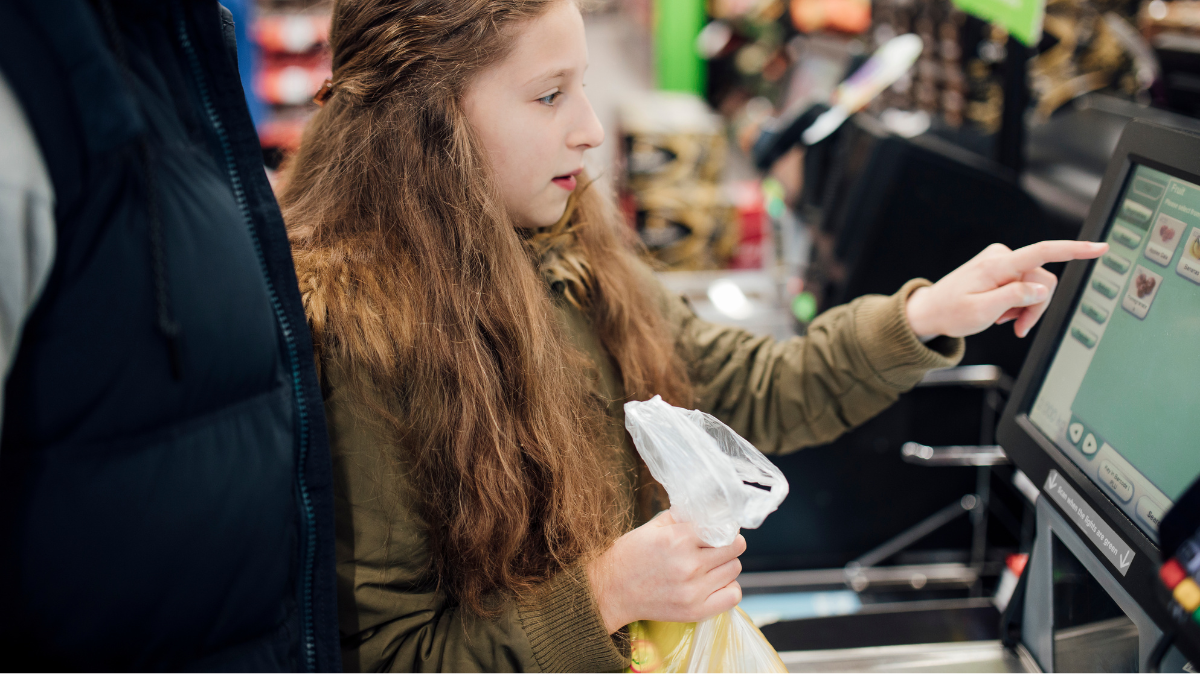
The issue of shoplifting in UK supermarkets has spurred a quest for retailers to search for innovative solutions to help tackle the ever-growing issue. We’ve recently seen a particular focus on anti-theft devices (like Helix Hooks) and strategic changes in store layouts, which together aim to reduce the opportunity of shoplifting occurring by making it harder for opportunistic thieves and by increasing the amount of surveillance in certain areas of the store. This ‘epidemic’ sheds light on the multifaceted approach taken by retailers, particularly in response to the rise of self-checkout systems and the perceived increase in shoplifting incidents. Unexpected troubles in the bagging area… More recently, we’ve seen a critique of self-checkout systems as many believe they have become potential facilitators of shoplifting. The argument is that the convenience of self-checkouts may inadvertently empower shoplifters, as the absence of human presence during the transaction makes it easier for individuals to exploit opportunities. This observation prompts a reflection on the evolving role of technology in retail spaces and the need to strike a balance between efficiency and security. Do retailers power to stop and search?... Some retailers have now added and extra measure of security and now situate staff beyond the checkouts to verify receipts against purchased items. This however has the potential to create backlash with some customers as they claim they shouldn't have to pay the price for self-checkout theft and many stating that there should be a level of trust between retailers and customers. Dee Set Group CEO, Greg Philips speaks on opportunistic theft in store and states “I think the self-checkout makes it easier for people to shoplift, the customer is getting more switched on now to the fact that they’re doing the clerks job for them in a way. It is a lot easier and more acceptable in people's minds when there isn’t a human involved, whereas to physically go through the till to pay is different and reduces the chance of opportunistic theft in store”. Sometimes customers make honest mistakes at self-checkout, such as accidentally failing to scan an item. However, it was recently reported that, nearly one in seven shoppers have admitted to having purposely stolen items at self-checkout, and nearly half of those said they would do it again. Greg believes that the current self-checkout system will evolve with an increased focus on deterring thieves. He states: “The self-checkout process will become more robust with its technology and make it more difficult for shop-lifters to succeed. It will be similar to the airport security process in its innovation.” Are self-checkouts doing more harm than good? Many retail companies have invested millions –if not billions– in self-checkout technology. Consumers want this technology to work, but self-checkouts haven’t made anyone’s life much easier. Customers are still queueing for tills and waiting for store-staff assistance with issues or for help with searching for PLU codes. Speaking on the developments on the self-checkout technology in store, Greg states “I think the way things are going in terms of introducing more and more technology within supermarkets, we’re starting to see backlash from shoppers’ for the lack of human touch”. The prediction that self-checkout processes will persist for many years to come aligns with the economic realities faced by retailers. The cost-effectiveness of self-checkouts, despite their potential vulnerabilities, makes them an efficient choice for many establishments. However, new technology innovations are likely to enhance the robustness of self-checkout systems, making it more challenging for would-be shoplifters to succeed. If anything, this highlights the importance of retailers discovering the delicate balance between cost-effectiveness and security measures. Retailers should focus on finding a harmonious balance… As retailers navigate the complexities of implementing anti-theft measures, finding the right balance between technology and human oversight becomes paramount. Some retailers like Booths, recently made the decision to axe a majority of their self-checkout tills that they have in store to help improve customer service. However other major retailers that have struggled to root out shoplifters using self-checkout machines, have introduced bags checks at supermarket exits. This surely isn’t the ‘human touch’ that shoppers are looking for and brings the question if retailers are benefitting from them. The future holds the promise of more robust self-checkout processes, aligning with the ever-advancing landscape of technological innovation. Ultimately, a holistic and adaptive approach that combines technological advancements, strategic staff placement, present customer service and cost-effective solutions will be essential in effectively combating the challenges posed by shoplifting in the UK supermarket sector. In the dynamic landscape of retail, combating losses due to theft poses a significant challenge for many retailers. If you’re looking at innovative ways that you can reduce the potential of retail crime, Dee Set are on hand to provide initiatives that support you. To learn more about how Dee Set can provide loss prevention and introduce retail security initiatives, contact our retail experts today.